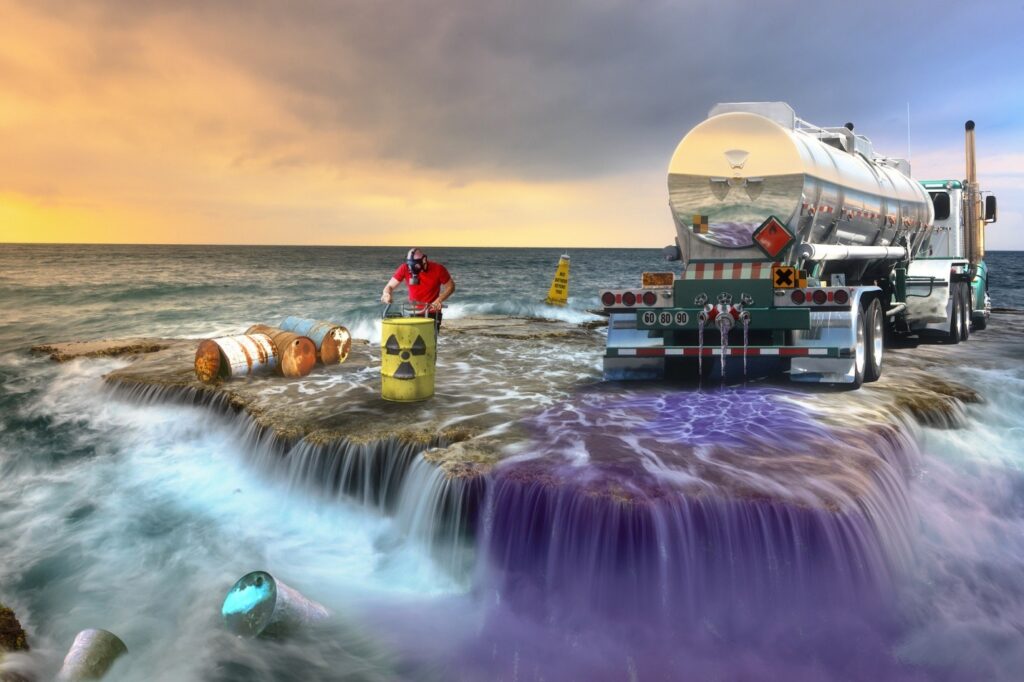The Of Reclaim Waste
The Of Reclaim Waste
Blog Article
Not known Details About Reclaim Waste
Table of ContentsAn Unbiased View of Reclaim WasteThe Greatest Guide To Reclaim WasteThe Main Principles Of Reclaim Waste Some Known Factual Statements About Reclaim Waste Reclaim Waste Things To Know Before You Buy
Discover the types, events, and forms of fluid waste. Domestic sewer waste describes the waste and items from a property septic storage tank. This type of waste is created by human beings in houses, institutions, and other buildings. This only includes sewage-disposal tanks that have a drain area. The correct administration and disposal of domestic sewage waste call for fluid waste to be moved to a sewer treatment plant where the proper methods and equipment are used to cleanse and get rid of waste.
Commercial waste frequently consists of prospective hazards, such as combustible materials or a blend of liquid and strong waste items, and calls for an advanced and comprehensive disposal procedure. The disposal of industrial waste typically involves the filtering of waste before transport to make sure safe and correct disposal. Industrial waste is created from by-products and overflow of commercial procedures and manufacturing.
This sort of waste can not utilize the same sewer administration transport or procedures as septic or business fluids. The hazardous waste monitoring process needs the examination and testing of liquid waste before it undergoes the disposal process (industrial wastewater treatment). Runoff waste is the fluid waste that originates from overflow and excess stormwater in extremely inhabited areas or cities
Runoff waste can create contamination and flooding if not dealt with correctly. Making sure appropriate waste administration can protect against calamities and reduce ecological injury.
Fascination About Reclaim Waste
Get in touch with PROS Services today to discover our waste monitoring and disposal services and the appropriate ways to take care of the fluid waste you produce.
(https://reclaimwaste1.weebly.com/)This so-called 'wastewater' is not just a vital source but, after therapy, will certainly be released to our land, waterways or the sea. Made use of water from bathrooms, showers, bathrooms, cooking area sinks, laundries and industrial processes is recognized as wastewater.

water made use of to cool down equipment or clean plant and equipment). Stormwater, a kind of wastewater, is runoff that streams from farming and urban areas such as roof coverings, parks, yards, roads, paths and seamless gutters right into stormwater drains, after rain. Stormwater streams untreated directly to regional creeks or rivers, at some point reaching the sea.
Little Known Facts About Reclaim Waste.
In Queensland, the majority of wastewater is dealt with at sewer therapy plants. Wastewater is transported from domestic or commercial websites with a system of drains and pump terminals, recognized as sewage reticulation, to a sewer therapy plant. Neighborhood federal governments build, preserve and operate most sewage treatment plants. Operators are certified under the Environmental Management Act 1994 to discharge treated wastewater at an acceptable ecological requirement into waterways.
The Department of Natural Resources recommends city governments concerning handling, operating and maintaining sewerage systems and treatment plants. In unsewered locations, neighborhood governments might need householders to set up individual or family sewage treatment systems to treat domestic wastewater from commodes, cooking areas, shower rooms and laundries. The Division of Natural Resources authorizes the usage of family systems when they are shown to be effective.
Many stormwater receives no therapy. In some brand-new neighborhoods, therapy of some stormwater to eliminate litter, sand and gravel has actually begun using gross contaminant catches. Wastewater treatment occurs in four phases: Removes strong matter. Bigger solids, such as plastics and various other things mistakenly released to sewage systems, are removed when wastewater is gone through screens.
Wastewater then moves into big tanks where solids clear up and are gotten rid of as sludge. Grease and residue are skimmed from the surface. Utilizes little living microorganisms understands as micro-organisms to break down and eliminate remaining liquified wastes and great fragments. Micro-organisms and wastes are incorporated in the sludge. Eliminates nitrogen and phosphorus nutrients that can cause algal blossoms in our rivers and threaten marine life.
The Reclaim Waste Statements
Nutrient removal is not available at all sewage therapy plants due to the fact that it calls for costly specialist tools. Clear liquid effluent generated after treatment may still have disease-causing micro-organisms - industrial wastewater treatment.

This usually means wastewater has actually to be treated or contaminants removed prior to it can be discharged to waterways. The majority of wastewater moves into the sewage system. Under the Act, city governments administer authorizations and licences for environmentally pertinent activities (ERAs) including wastewater releases that might have a regional impact. The division provides approvals and licences to Periods entailing wastewater releases that could have a regional or statewide influence.
Unknown Facts About Reclaim Waste
Otherwise, examples are considered laboratory analysis. Typically numerous tests are needed to develop the degrees of each of the various pollutants such as oils, heavy metals and pesticides in water. Tracking provides accurate info regarding water high quality and can confirm that licence conditions are being satisfied. The information acquired with tracking offers the basis for making water quality decisions.
Report this page